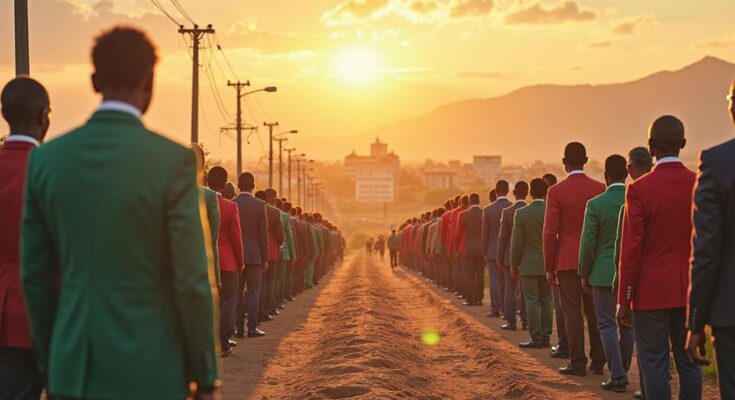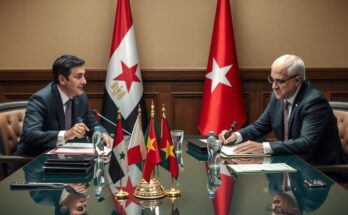Burundi has affirmed its support for Morocco’s sovereignty over Western Sahara, endorsing the Autonomy Plan as a viable solution to the dispute. This move represents a setback for Algeria’s diplomatic efforts, as highlighted by political analyst Oualid Kebir. The situation reflects a trend of increasing recognition and support from African nations for Morocco’s position in the ongoing conflict.
In a noteworthy reaffirmation of diplomatic support, Burundi has publicly endorsed Morocco’s territorial integrity, declaring its backing of Morocco’s sovereignty over all its territories, including the contentious Western Sahara provinces. This affirmation was articulated during a high-level diplomatic meeting in Rabat, where Burundian Foreign Minister Albert Shingiro met with Moroccan Foreign Minister Nasser Bourita. Minister Shingiro emphasized that Burundi recognizes Morocco’s Autonomy Plan as “the only credible and realistic solution” to the ongoing regional dispute concerning Western Sahara. Furthermore, he commended the United Nations as the “exclusive framework” for achieving a sustainable and effective resolution to the issue. The implications of this support were keenly noted by Algerian political analyst Oualid Kebir, who remarked on social media that Burundi’s stance constitutes a “strong slap” to Algeria’s diplomatic endeavors in the region. He articulated, “There’s no use… the game is over with Burundi,” indicating that Algeria’s attempts to alter Burundi’s position were unsuccessful despite their recent diplomatic engagements. This latest confirmation of support from Burundi follows the establishment of a Burundian consulate general in Laayoune, the largest city in Western Sahara, in February 2020. This act marked the sixth diplomatic representation to open in Laayoune within a brief period, reflecting a notable increase in African backing for Morocco’s position in this protracted dispute. Recently, Chad also established a consulate in Dakhla, bringing the total of countries with diplomatic missions in Morocco’s southern territory to 29. In this context, a recent report by the Moroccan Center for Parallel Diplomacy and Civilizational Dialogue underscores Morocco’s strategic return to the African Union (AU) in 2017, a move designed to enhance its diplomatic standing regarding Western Sahara. The report highlights Morocco’s challenges within the AU, including the legal and political complexities stemming from the Polisario Front’s presence in the organization. Morocco is reportedly aiming to expel Polisario from the AU by creating a “broad African front” in support of its position, leveraging pragmatic relationships, security partnerships, and collaborative efforts with African allies within AU frameworks. Moreover, the center recommends the preparation of a detailed legal case contesting the Polisario’s eligibility for AU membership, particularly focusing on its lack of United Nations recognition as a state and its contentious claim to represent the Sahrawi people.
The Western Sahara region has been a subject of territorial dispute since Spain relinquished control in 1975, leading to conflict between Morocco, which claims the territory as its own, and the Polisario Front, which seeks independence for the Sahrawi people. The situation has drawn international attention, with various countries taking sides. Over recent years, Morocco has gained increasing recognition and support from several African nations, as these countries establish diplomatic missions in western Sahara. This has enhanced Morocco’s position in international discussions surrounding the territory.
In conclusion, Burundi’s reaffirmation of support for Morocco illustrates a shift in diplomatic alliances that poses challenges to Algeria’s influence in the region. As more African nations endorse Morocco’s stance on Western Sahara, this trend not only fortifies Morocco’s diplomatic efforts but also complicates Algeria’s attempts to advocate for the Polisario Front. As such, the dynamics of this territorial dispute continue to evolve, marking a significant chapter in regional politics.
Original Source: moroccoworldnews.com




